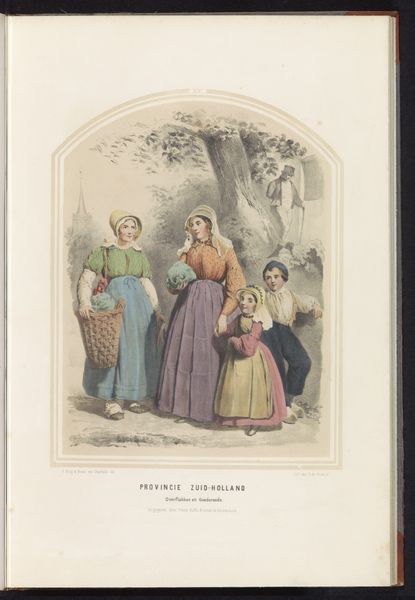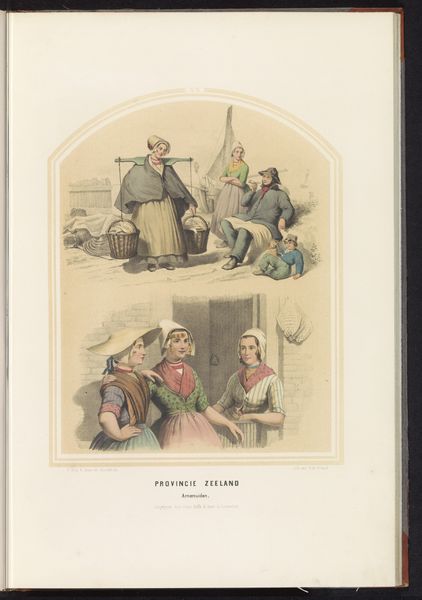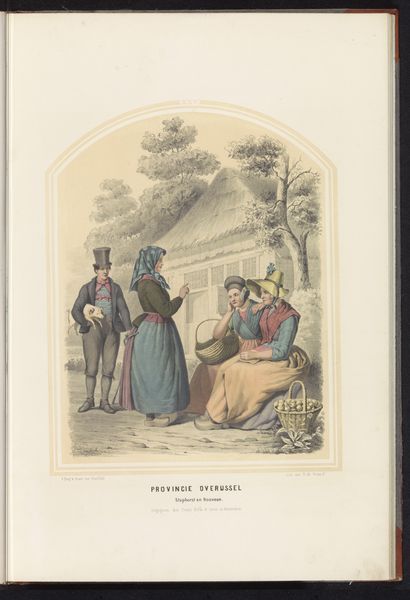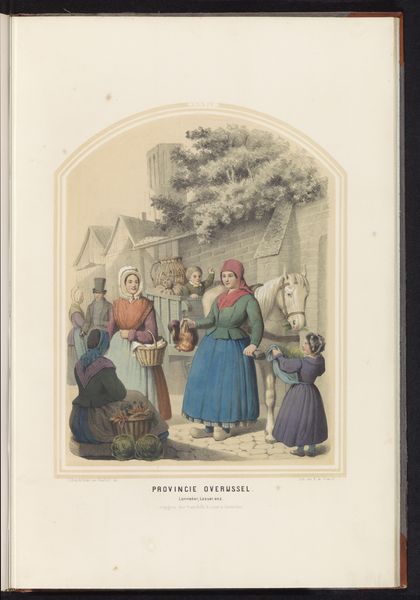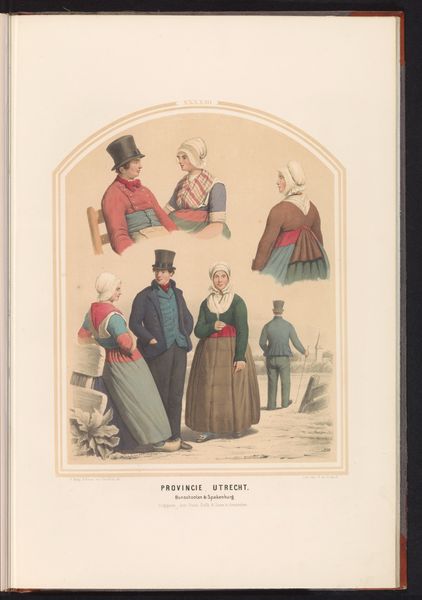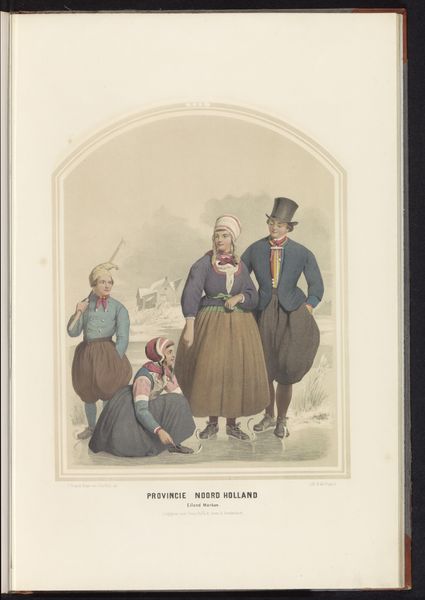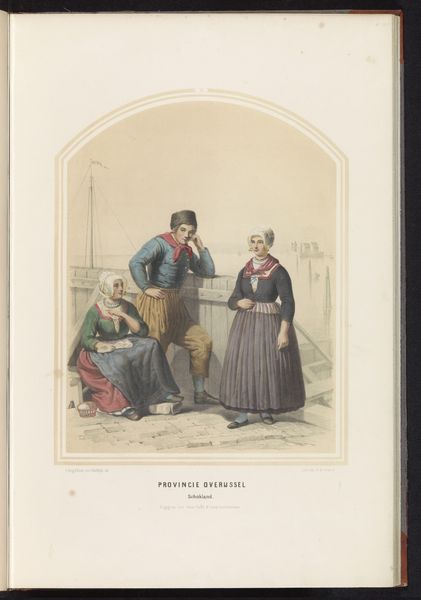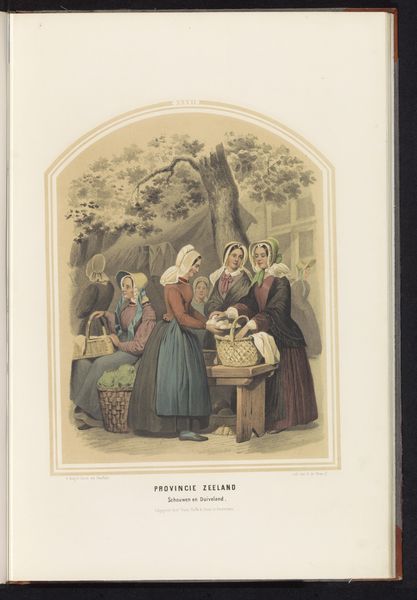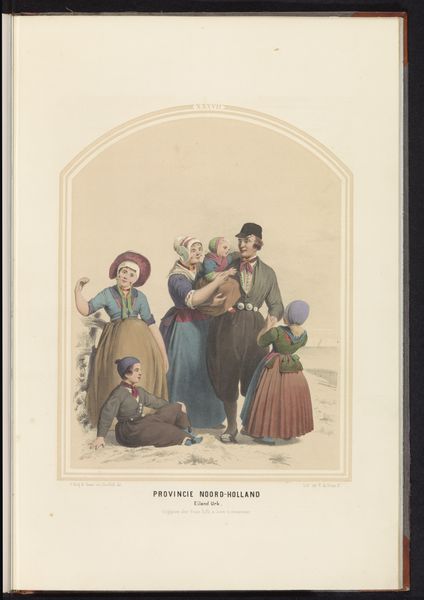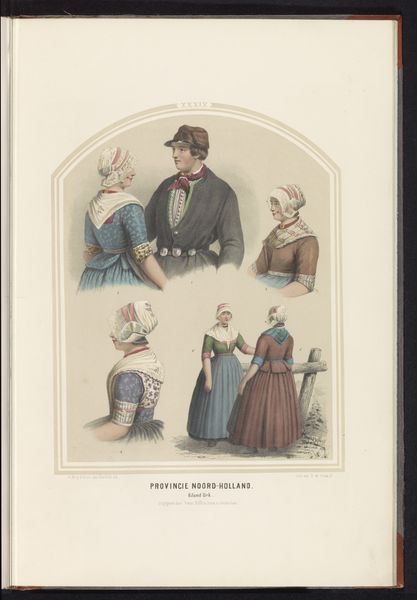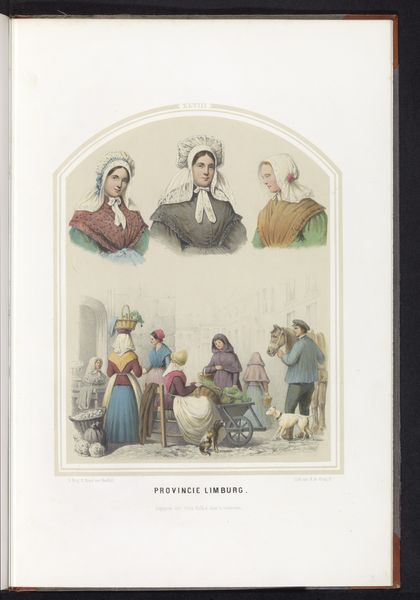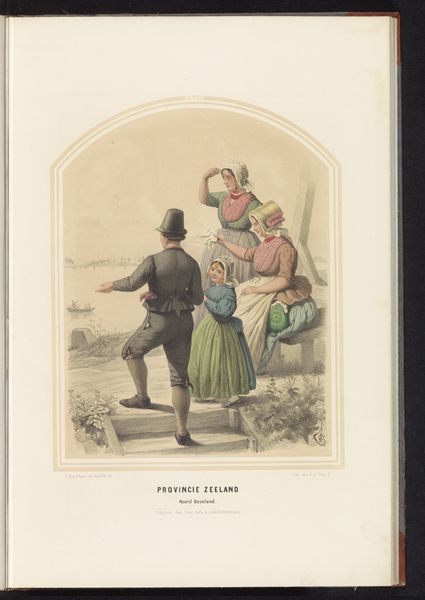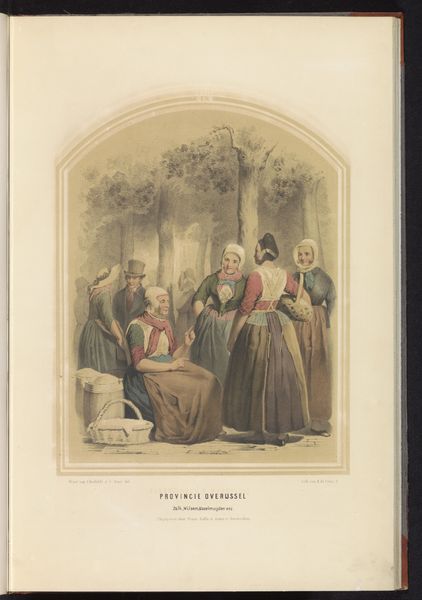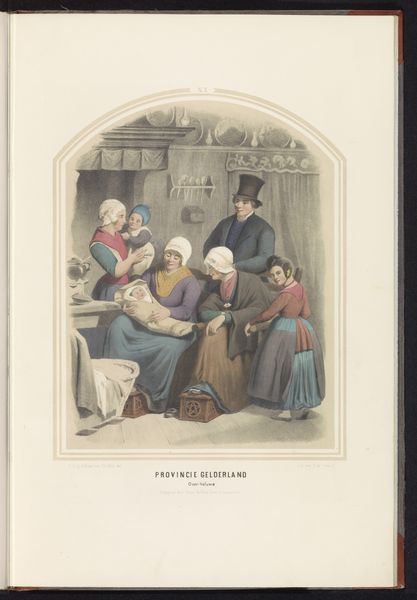
print, watercolor
#
aged paper
#
toned paper
#
16_19th-century
# print
#
personal sketchbook
#
watercolor
#
coloured pencil
#
sketchbook drawing
#
watercolour bleed
#
watercolour illustration
#
genre-painting
#
sketchbook art
#
botanical art
#
watercolor
Dimensions: height 523 mm, width 350 mm
Copyright: Rijks Museum: Open Domain
Editor: This is a print titled "Klederdracht van de provincie Gelderland, 1857," or Traditional Dress of the Province of Gelderland, from 1857. It appears to be watercolor and coloured pencil, a genre painting depicting scenes of daily life. The image feels a bit romanticized. What are your thoughts, how do you interpret this work, given its context? Curator: It's interesting you pick up on the romanticization. This image, and others like it, were often created and circulated during a period of intense national identity formation. It’s crucial to ask: Who is creating this image, and for whom? Are they insiders representing their own community, or outsiders constructing an image of Gelderland for a wider audience? Consider the power dynamics inherent in that gaze. Editor: That's a great point. So it's not just a neutral depiction, but possibly a constructed representation. How does this play into larger narratives? Curator: Precisely! We need to unpack what "tradition" means in this context. Whose traditions are being valued and preserved, and why? The image seems to idealize rural life and perhaps essentialize the identity of the people of Gelderland through their clothing. What does it mean to define a group of people based on their attire in this period? Does it include or exclude certain groups within Gelderland? Editor: So it’s potentially reinforcing certain stereotypes or suppressing diversity within the region itself. It raises questions about authenticity, doesn’t it? Curator: Absolutely. And it highlights the crucial role images like these played in shaping both regional and national identity. By examining them critically, we can better understand how notions of "us" versus "them" were constructed and how these constructs continue to impact us today. Editor: I'll definitely look at it with that in mind. Thanks! Curator: My pleasure! Examining art this way definitely allows us to explore complex ideas.
Comments
No comments
Be the first to comment and join the conversation on the ultimate creative platform.
